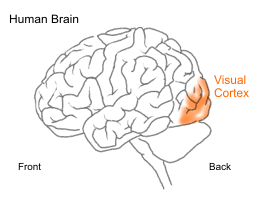The Story
Hubel majored in physics at McGill University in Montreal, Quebec, and then became interested in medicine. He enrolled in McGill’s medical school, without ever having taken a biology course. In 1958, Hubel moved to Johns Hopkins and teamed up with Torsten Wiesel, a researcher from Sweden. The pair began almost immediately to make key discoveries about the visual cortex, which is the part of the brain involved in vision. A year later they moved to Harvard Medical School, continuing their experiments. Throughout the 1960s and 1970s, Hubel and Wiesel co-authored a series of ground-breaking papers on the visual cortex. They used microelectrodes and modern electronics to detect the activity of individual neurons, using cats as their subjects. (The cats were not harmed by these experiments; indeed, their purring created vibration problems.) Thanks to the work of Hubel and Wiesel, the visual cortex has become the best known part of the brain. They shared the Nobel Prize in 1981.

Image by: Fedak Medical Illustration
Sources: Interview in Omni Magazine, February 1990; Chambers Concise Dictionary of Scientists, 1989; Oxford 2001 Distinguished Speakers site, Dr. Hubel's Nobel autobiography, NJ Assn for biomedical research website; Image: Oxford 2001 Distinguished Speakers site.
The Person
- Birthdate
- February 27, 1926
- Birthplace
- Windsor, Ontario
- Date of Death
- September 22, 2013
- Place of Death
- Lincoln, Mass.
- Other Interests
- Flute, woodworking, photography, languages, astronomy, skiing, tennis and squash.
- Title
- Physicist; Medical Doctor; University Professor of Neurobiology
- Office
- Harvard Medical School, Boston
- Status
- Deceased
- Degrees
-
- BSc (Hons in Math and Physics), McGill, 1947
- MD, McGill, 1951
- Awards
-
- Fellow, American Academy of Arts and Sciences, 1965
- Nobel Prize in Physiology or Medicine, 1981
- Foreign Member, Royal Society, 1982
- Last Updated
- May 15, 2020
- Popularity
- 60957
Profile viewed 60957 times
Other scientists who may be of interest: